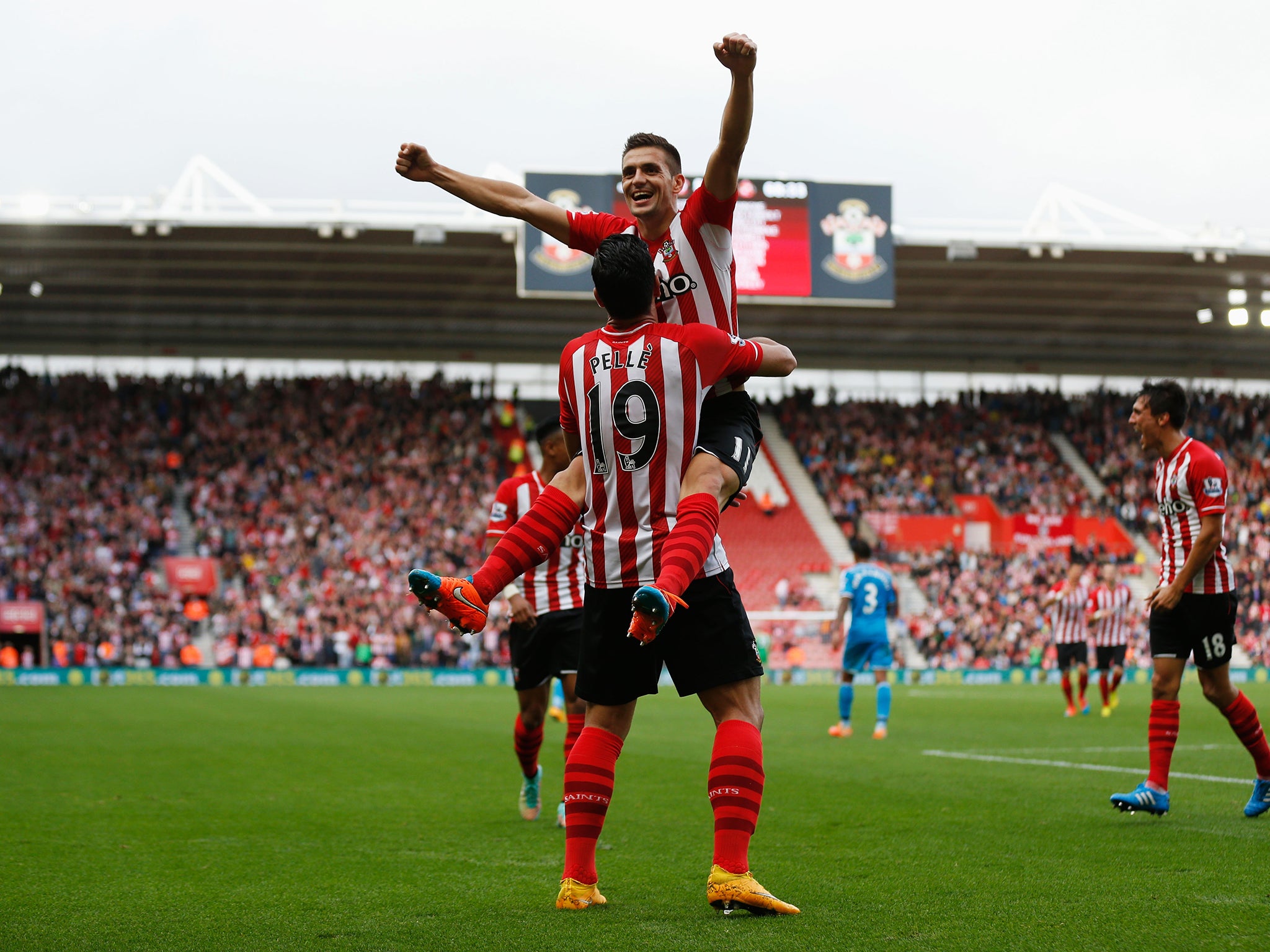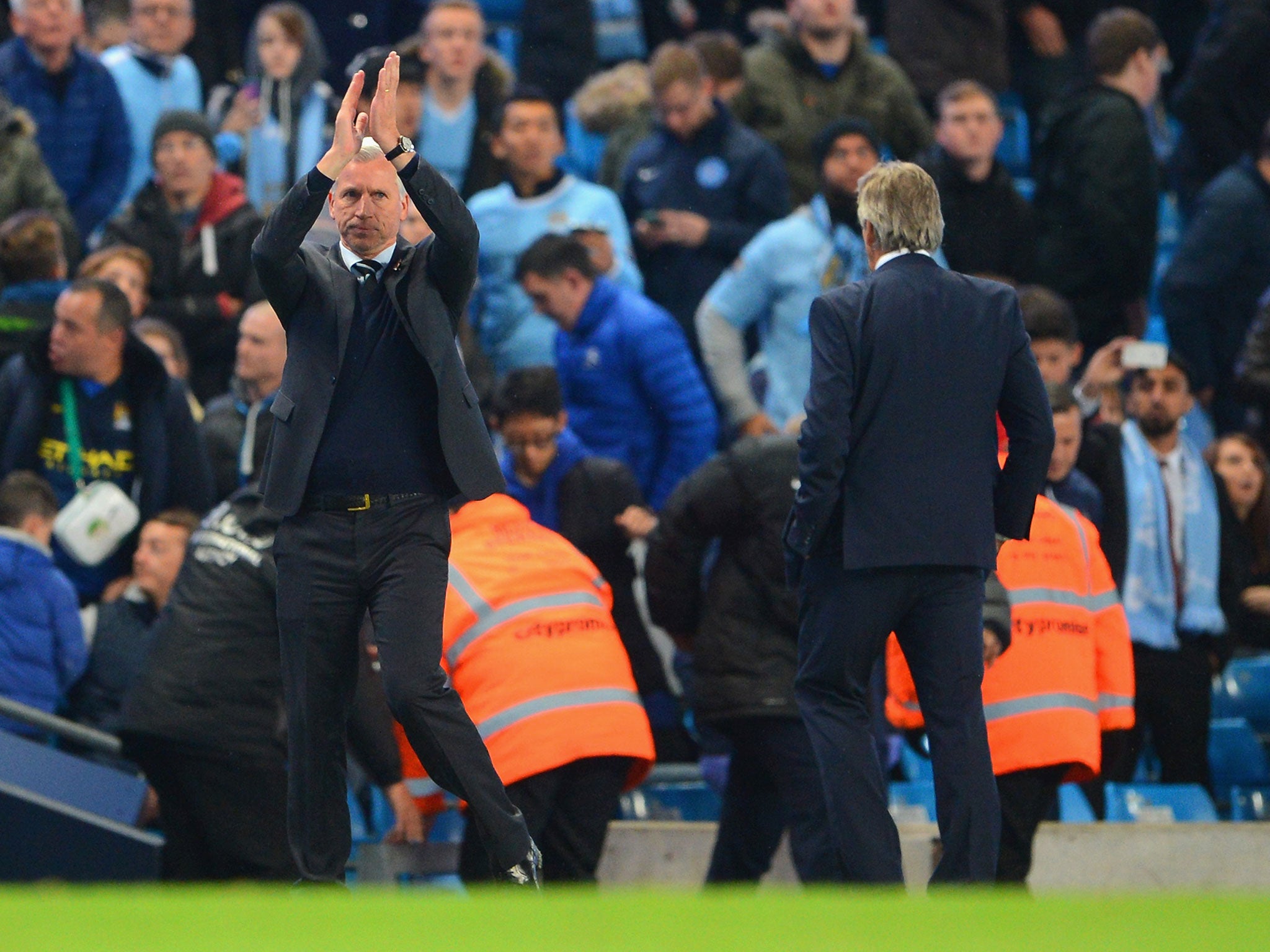Tim Sherwood column: Southampton are succeeding because they have an identity
They also have a plan based on realistic targets and sustainable finances, writes the former Tottenham manager in his exclusive column for The Independent

Your support helps us to tell the story
From reproductive rights to climate change to Big Tech, The Independent is on the ground when the story is developing. Whether it's investigating the financials of Elon Musk's pro-Trump PAC or producing our latest documentary, 'The A Word', which shines a light on the American women fighting for reproductive rights, we know how important it is to parse out the facts from the messaging.
At such a critical moment in US history, we need reporters on the ground. Your donation allows us to keep sending journalists to speak to both sides of the story.
The Independent is trusted by Americans across the entire political spectrum. And unlike many other quality news outlets, we choose not to lock Americans out of our reporting and analysis with paywalls. We believe quality journalism should be available to everyone, paid for by those who can afford it.
Your support makes all the difference.What has impressed me so much about Southampton is that at the heart of the club there is clearly a vision and a structure around which everyone, and everything, works. It dictates who they sign, how they play and how they develop young footballers.
In short, Southampton have an identity. They are not just second in the Premier League after nine games, they know what they stand for and how they want to achieve it. It is an identity that they seem prepared to stick by through lean times too. You won’t be surprised to know that this is not the case at every club in the Premier League and beyond.
Having an identity is not just a case of signing the right players – although in the likes of Dusan Tadic, Graziano Pelle, and Sadio Mané they have made some of the signings of the season. It is not just a case of playing the right way, although clearly they are a good side to watch. It is also about achieving financial stability and setting realistic expectations that everyone at the club can buy into.
For Ronald Koeman, for any manager, this is the ideal scenario in which to work. You can be honest with your board about the expectations you have for the squad. You have support in the identification and recruitment of players, but you also have the final say over who comes in. You have an excellent academy and a mentality among the supporters that young players need time to adapt and require patience as they take their first steps in the senior game.
I know one of the key figures in recruitment at Southampton and the way they work is effective but simple. They ask the manager to identify the kind of player he wants and then offer him a range of options they believe fit the bill. For example, if you are after a quick, dynamic striker, there is no point being offered a big, slow target man simply because he happens to be available.
To achieve the number of successful signings that Southampton have made, you need a recruitment head who knows the English game well and has an intimate understanding of the club itself. That does not mean he only buys English or British players, quite the contrary. But it does mean that he knows which kind of player will thrive in the Premier League and which will not.
Equally, those in charge of recruitment will have to know exactly what quality of player they already have in the club’s academy, and where those players are in terms of their readiness to step into the first team. There is simply no point spending millions of pounds acquiring players who are inferior or only fractionally better than the players the club are already developing.

Less wealthy clubs must not be frightened to tell their supporters that they are not able to compete with the likes of Manchester City, Chelsea and Manchester United when it comes to signing the very top players. Most fans understand that. There should always be a willingness to spend money on a make-the-difference player but not mediocre ones who will block the path of youngsters coming through.
Southampton and most others cannot buy players in the way that the wealthiest clubs do. They don’t have the resources to spend £30m on one player. So instead they need a coherent plan to attain their goals. There is not just one way to operate in football; there are many different ways to survive and thrive in the Premier League. It is a case of setting out what it is that best suits the club in question.
For example, when I took over at Tottenham last season I was told that the club wanted to play more attractive football and score more goals. I said that I felt the top four was impossible, and so it proved, but I delivered what was asked. As a manager it is important to be realistic about what you can achieve. If you promise a chairman the earth, you can end up looking like a fraud when it doesn’t happen.
The rise of the director of football role, or the “sporting director” as it is known elsewhere, also changes the picture for a manager. It always strikes me that this role seems to vary from club to club. No one is sure what the parameters of the job are. No one is sure how the performance is measured. Is the director of football a chief scout with a different title? Or does he have the power to sack the manager?
It makes life a lot easier, especially in the club’s dealing with its fans and the media, if that role is more clearly defined. That way, we know who is accountable for what and who has to take responsibility when certain aspects of the club do not work. The manager has to have the final say on the players the club signs in order that he can be completely accountable for the team’s performance.
What Southampton have proved is that you don’t simply have to buy players proven in the Premier League to survive. That you can have a blend of age and youth, British and foreign nationalities – none of which has cost the club huge amounts. In fact, they have made a considerable profit in their transfer trading this summer and find themselves second in the Premier League. It won’t always be plain sailing for them, but they will have that identity to fall back on.
Someone once told me that when a club decides to buy “experience in football”, the only thing they are guaranteeing is that those players, or that manager, will cost more. When you have an identity as a club, and you know what you are looking for, and recruit according to a rationale, you might not always get it right. But, as Southampton have proved, you’ll get it right more often than not.
Pardew’s win at Manchester City shows desire can trump ability
Great credit to Alan Pardew for going to the Etihad Stadium this week and beating Manchester City in the Capital One Cup. He put himself under extra pressure by making changes to his Newcastle team, but he had obviously seen something in the players he brought in and knew that they were ready to fight for their places.

I would always take desire over ability, and the desire was there from Newcastle. On paper, there was no way they should have won the game. Against Tottenham, Newcastle went for it after half-time. Alan changed to two up front, they got a bit of good fortune with the very early goal and from then on it always looked like Newcastle would win. I admire that readiness to take a risk. Why sit back and lose 1-0? A defeat is a defeat, you may as well go down fighting.
As for City on Wednesday, I felt there were too many players who did not want to be playing in the Capital One Cup. They did not look like they wanted to be there.
Sam Allardyce is another who turned his situation around. I can’t think of another manager who, at this time, could have got West Ham to fourth in the Premier League after nine games. Why do managers like Alan and Sam carry on? They love it. They do it for those moments when they beat a team like City and that feeling at the final whistle. Nothing beats it.
Join our commenting forum
Join thought-provoking conversations, follow other Independent readers and see their replies
Comments